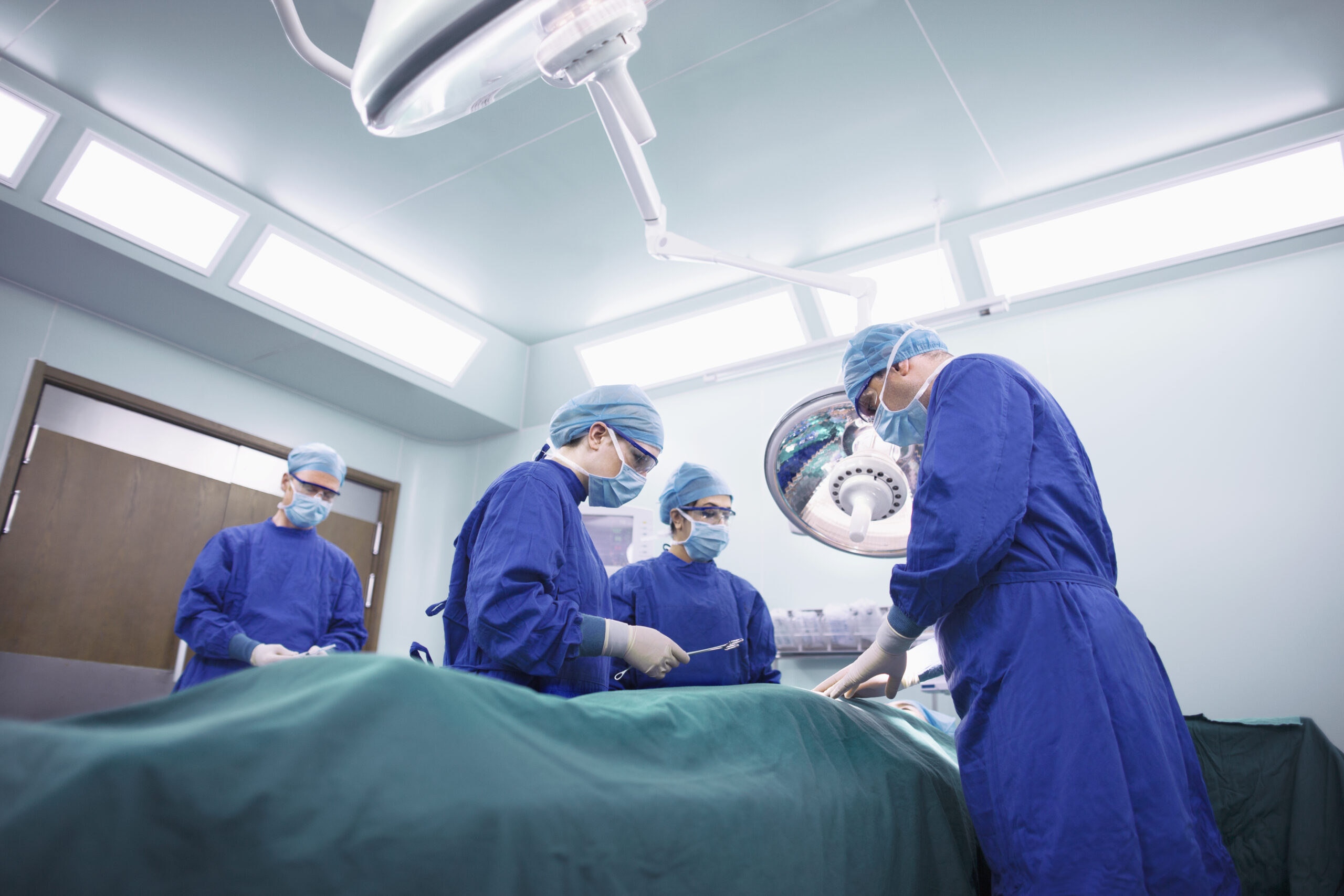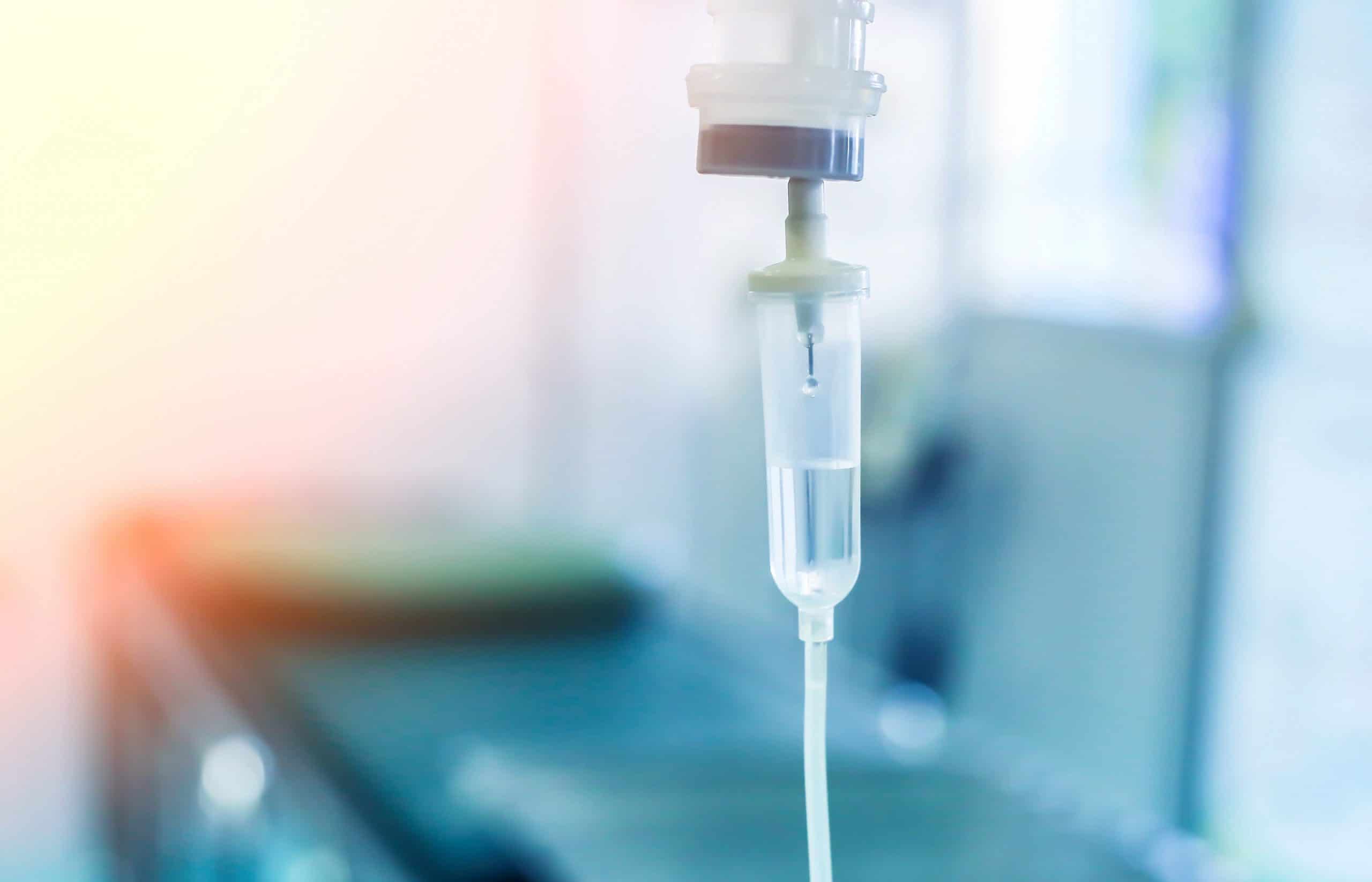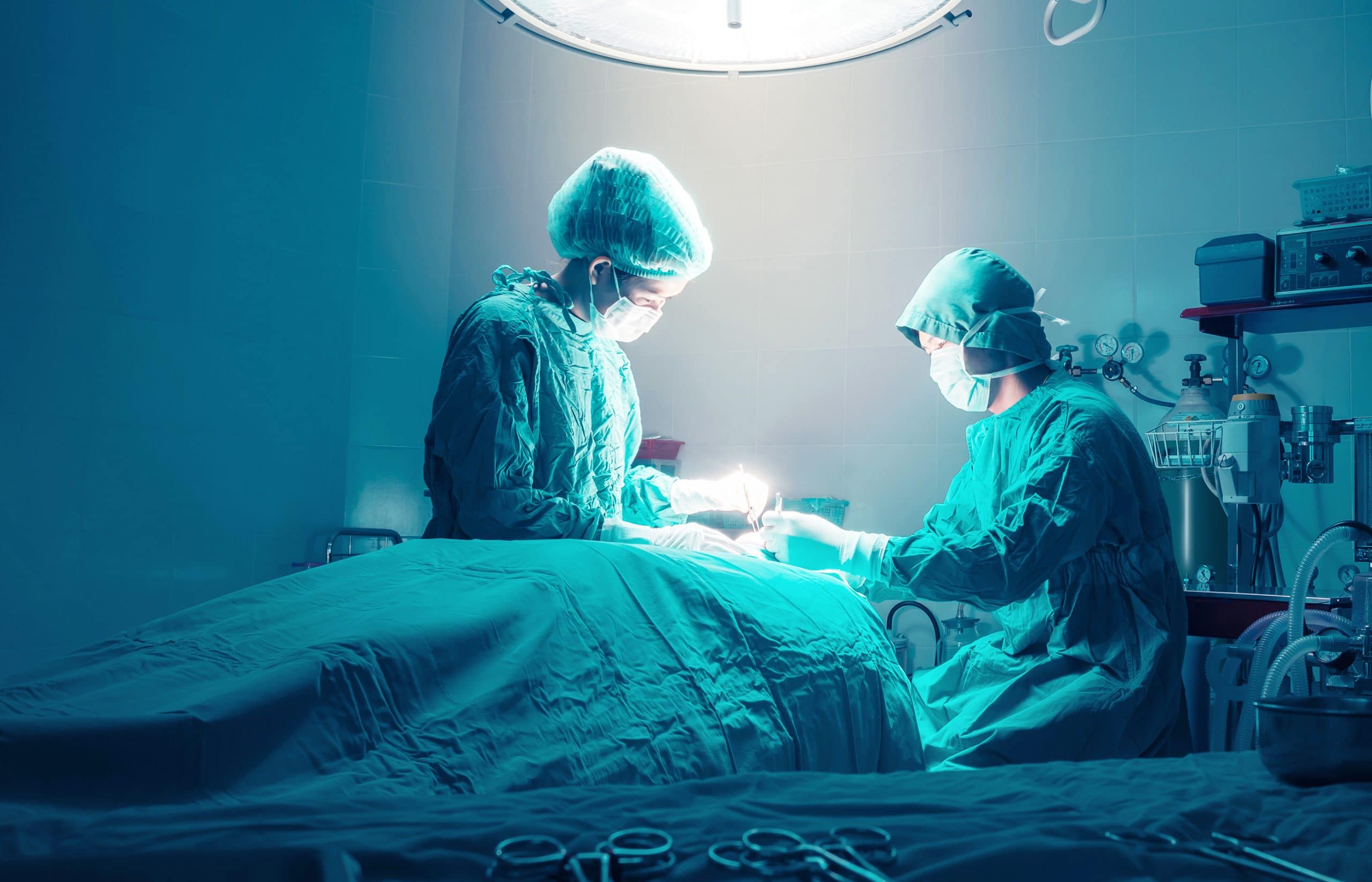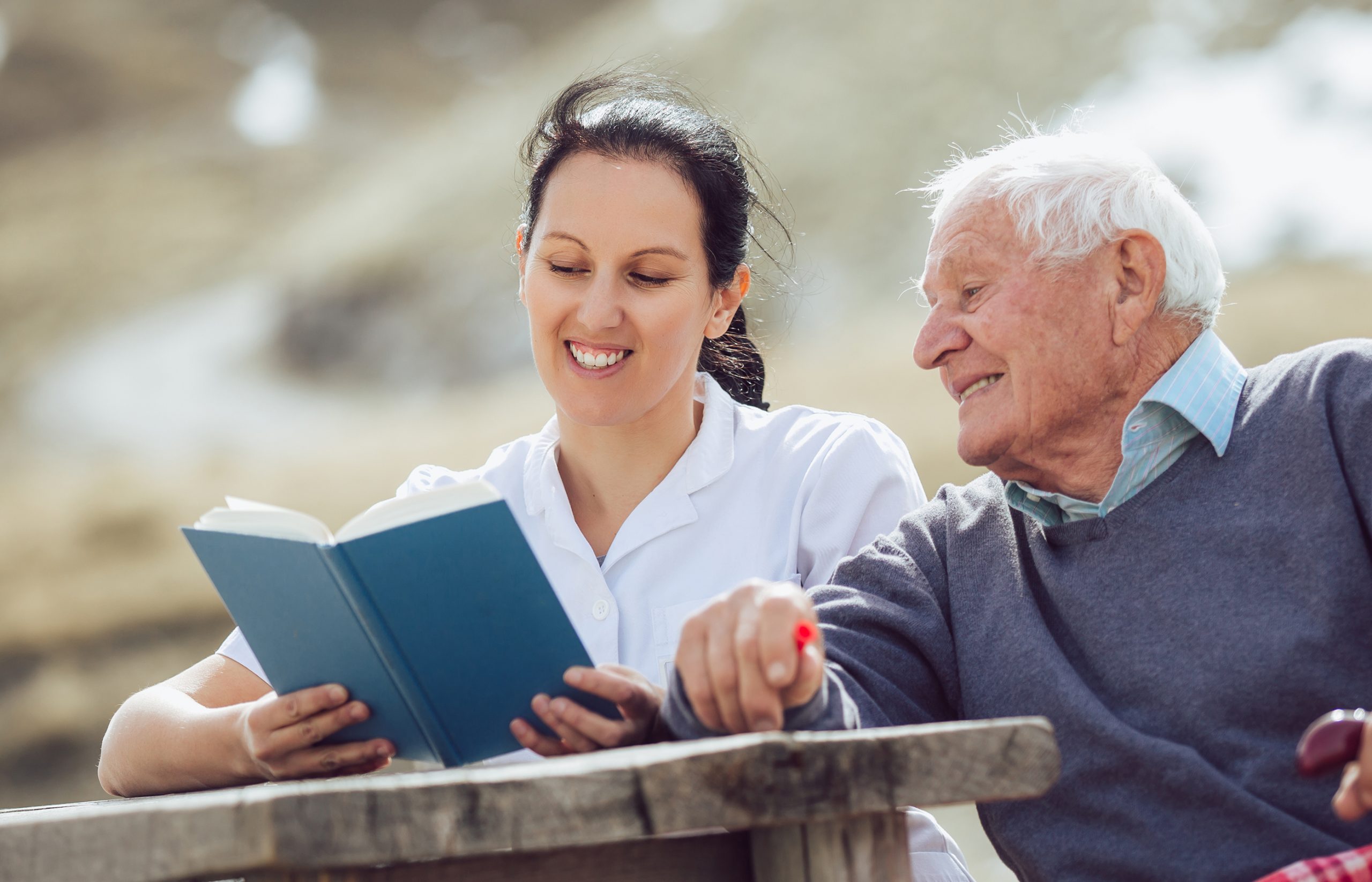Surgery Side Effects
The side effects of lung cancer surgery are similar for small cell and non-small cell lung cancer and include pain, increased risk of infection, and trouble breathing.

What Are the Side Effects of Lung Cancer Surgery?
Surgery is a type of cancer treatment that involves the removal of tumors through an incision (usually in the chest). Lung cancer is often treated with surgery in the early stages when tumors are large enough to remove but have not spread throughout the body. Subsequently, patients with non-small cell lung cancer are more likely to undergo surgery than patients with small cell lung cancer.
In general, the severity of complications stemming from lung surgery depends on the overall health of the individual. The side effects of surgery to treat lung cancer can include:
- Blood clots
- Bronchopleural fistula
- Chest and/or lung pain
- Collapsed lung
- Cough
- Depression and/or anxiety
- Excessive bleeding at incision and site of the surgery
- Fatigue
- Gastrointestinal problems
- Heart problems
- Infection or inflammation in the lung
- Loss of appetite
- Skin reactions
- Sore mouth or throat
- Trouble breathing
The most common side effects of lung cancer surgery are pain, loss of appetite, and an increased risk of infection (about three of every four patients experience these symptoms). Blood clots are another common complication from any type of surgery. Consequently, doctors will encourage you to gradually work on your strength and stamina post-operation.
What to Expect After Surgery
Although surgery is not a treatment option for all people diagnosed with lung cancer, it may be a curative treatment option for patients in the early stages of the disease. To remove tumors in the lungs, doctors may remove a part of the lung or the entire organ.
New types of lung cancer surgery, such as video-assisted thoracic surgery (VATS) and robotically-assisted thoracic surgery (RATS), have been shown to reduce the number and harshness of surgery side effects. Nonetheless, the majority of patients experience some kind of side effect following surgery.
After surgery, patients can expect to stay in the hospital for five to 10 days in recovery – though it may take weeks or months to fully recover. A team of doctors and cancer specialists will monitor your health, introduce you to your new prescription treatment plan, and provide you with an exercise plan to start moving around. Whether you have to stay in bed or are able to get up and exercise, moving your body improves circulation (preventing blood clots and helping repaired tissues heal). Breathing exercises will help you adjust to some loss of lung function, too.
Bleeding
Excessive bleeding is among the common complications of any type of surgery and can be dangerous if left untreated. Infections that begin inside your body or near your scar can also cause you to bleed uncontrollably.
If you start bleeding at the site of the incision (i.e., where the doctors made cuts to enter your chest cavity), visit emergency medical services as soon as possible.
Difficulty Breathing
Directly after any kind of surgery, many patients experience some difficulty breathing (often caused by the lingering effects of anesthesia). Patients in better health tend to recover more quickly than those in poor health.
For patients who have had a whole lung or part of one removed, trouble breathing may persist for several weeks or months. Even simple tasks such as getting dressed or taking the stairs may be tiring. Your doctor will coach you on breathing techniques to help you adjust and recover after surgery. Some patients may consider making an appointment with a special respiratory clinic to further rehabilitate their lungs.
Conversely, some patients experience significant improvement in their ability to breathe after recovering from surgery. Symptoms such as cough and chest pain are also reduced due to the removal of tumors blocking airways.
Recovery techniques for trouble breathing include:
- Meditation or relaxation exercises
- Practicing breathing techniques
- Taking all prescription medications regularly
Fatigue
When you wake up after surgery, you’ll likely still feel fatigued. This feeling of tiredness and physical exhaustion may continue for a few days or weeks depending on how well you recover from the operation.
Recovery techniques for fatigue include:
- Ask for help with physical tasks when needed
- Drink water regularly throughout the day
- Eat plenty of fruits and vegetables
- Get 8 hours of sleep each night
- Take naps as needed
- Visit a physical therapist
Gastrointestinal Problems
The medication used to keep you asleep during surgery (known as anesthesia), your prescriptions afterward, as well as the stresses of treatment may contribute to gastrointestinal issues after lung cancer surgery. These could include:
- Constipation
- Diarrhea
- Loss of appetite
- Nausea
- Vomiting
Recovery techniques for gastrointestinal problems include:
- Add olive oil, milk, or yogurt to recipes to increase protein and caloric intake
- Snacking whenever you’re hungry
- Eating bland foods that won’t upset your stomach
- For constipation: eating foods high in fiber (i.e., beans or raw vegetables)
- For diarrhea: avoiding high-fiber foods your body may not digest fully
- Drinking peppermint tea, ginger tea, or ginger ale to calm your stomach
- Going for short walks before eating to increase hunger
Infection and Inflammation
While lung cancer surgery increases your risk of developing an infection, most patients are able to avoid this side effect through proper wound care and managing their overall health. Your doctor will instruct you on how to care for your wound before you leave the hospital.
Signs of a possible infection include:
- Feeling sick or nauseous
- Fever
- Inflammation (i.e., redness) near the scar
- Shivering
- Swelling near the scar
Once an infection develops, it is important that the patient see a doctor as soon as possible. Infections can worsen rapidly and become fatal.
You can reduce your risk of infection after surgery by:
- Avoiding large groups of people
- Avoiding sick people
- Brushing with a soft toothbrush regularly
- Don’t handle animal waste (i.e., cat litter or dog feces)
- Gargling baking soda with warm water to clean your mouth
- Staying away from plants as they often hold mold
- Using an electric razor in place of razor blades
- Washing hands often
Skin Reactions
The most common types of lung cancer surgery (such as lobectomy, thoracotomy, and pneumonectomy) require doctors to make six-to-eight-inch cuts in the skin of the chest or abdomen. Thoracoscopic surgeries (like VATS and RATS) require much smaller incisions of about an inch. Reducing the area doctors need to cut into the skin also reduces the side effects of surgery scars.
Skin reactions caused by lung cancer surgery include dryness, itchiness, pain, peeling, rash, and redness near the patient’s scar(s).
Recovery techniques for skin reactions include:
- Applying skincare products with aloe or lanolin to the scar
- Avoiding skincare products prior to any type of treatment
- Using sunblock or avoiding intense sunlight
- Using hypoallergenic and sensitive skin products
Long-term Complications
Long-term complications from lung cancer surgery affect some patients whose health was poor prior to surgery, as well as those who have large amounts of surrounding tissue or an entire lung removed.
Nerve damage caused by the operation may lead to long-term chest pain for some patients. Some also experience pain near their scar. As your nerves work to repair themselves, this pain may fade over time. For others, visiting a pain clinic or neuropathy specialist is needed to control pain. Painkillers are not as common in the treatment of pain today, and most doctors will not prescribe them long-term. However, anticonvulsants (or anti-epileptic medication) and antidepressants have proven effective in pain management.
Also, some people have noticed a significant impact on their ability to exercise after surgery (especially swimming). The removal of lung tissue may make swimming harder after surgery (even for patients who were strong swimmers before) and affect buoyancy (i.e., how easily you float on top of water). Ask your doctor before going swimming and always swim with another person around.
Regardless of the type of treatment, many lung cancer patients suffer bouts of anxiety and/or depression as a side effect of cancer therapy. The rigors of doctor appointments and hospital stays can take a toll on even healthy individuals. Fortunately, there are many options for cancer support groups and mental health care for cancer patients and their caregivers.


